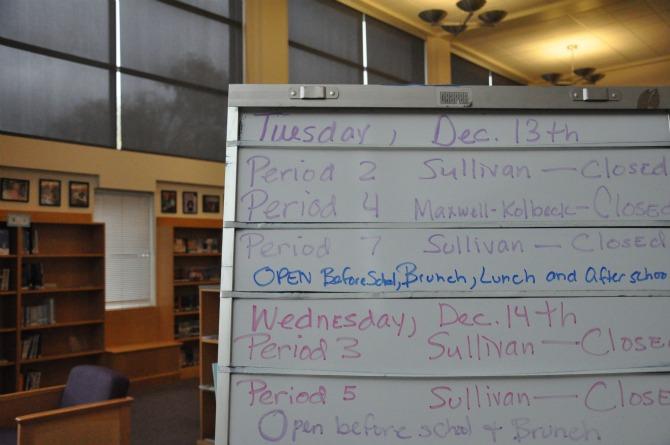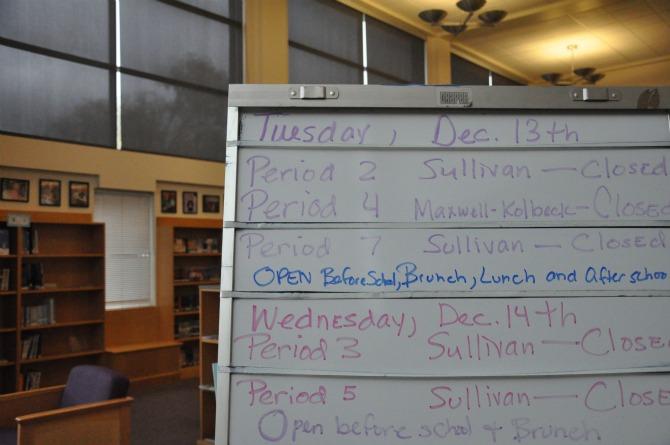
The free period is the saving grace of a MVHS student’s daily schedule. It’s a free hour to get homework done, to study and to take a break from the unending sequence of impossible tests and tedious lectures. An ideal location for this respite is the library, with its study tools and comfortable accommodations. Unfortunately, however, due to excessive rules and unaccommodating library policies, it is very difficult for students to make use of this resource.

It’s understandable that there are some regulations that the librarians simply can’t bend — the 250 people maximum in regards to fire safety, for example. But beyond rudimentary rules such as this, it seems that many library rules are arbitrary obstacles to an effective use of time. Although a certain degree of structure obviously is required to prevent a chaotic environment, to many students, it often feels like the rules simply get in the way.
First of all, as seen by the new library policies on Schoolloop, before a student is even allowed to be in the library during a free period, there are several steps that must be followed. A student has to fill out a library use form online, acquire an Open Period Pass from the office, and sign in every day upon entering the library. In addition, students must have both their student IDs and Open Period Passes next to them at all times while studying in the library. Again, some of these measures are necessary in order to ensure that students really do have a free period and aren’t just skipping their classes, but having students jump through all these hoops just to use the library is excessive. In reality, there really isn’t any reason that a free period pass alone would suffice to ensure that those using the library do actually have the right to. A policy that a policy like this would keep out students ditching class, and make sure that students with free periods are complying with free period rules.
Furthermore, a student can only use the library on days when it’s open, which for most periods is extremely few. Academic classes take priority over students with free periods, which is again understandable. However, as mentioned before, the total human capacity of the library is 250 people, and according to fire safety rules, even three classes using the library leaves more than 150 open spots — far more than what should prevent students with free periods from coming in. Obviously students with free periods being disrespectfully loud or disruptive shouldn’t be allowed in the library, but there isn’t any apparent problem with students that need to work on library computers, in the computer lab or at the tables. However, year after year, the librarians set the rule of no students in the library while it is in use by classes. For example, when the computer lab is in use by a class, even if no one else is in the library, the library can be closed to those with free periods. What would make more sense would be to allow students to work and, if they become disruptive, they are asked to leave.
As with all libraries, there is no question that ours should have rules in place to ensure that it’s an environment conducive to learning. However, a great majority of library policies serve no apparent purpose. Without some much needed library lenience, these rules will continue to inconvenience students and lessen the effeciency of their studies.








